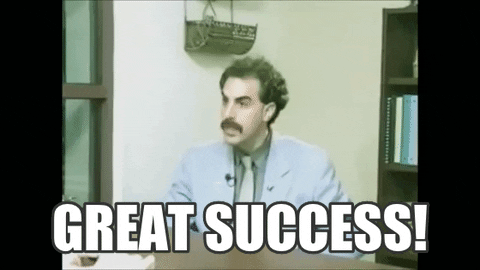The Success Myth: Navigating the Arrival Fallacy
On the disconnect between how we define success and think others define it. On the arrival fallacy trap. And other Monday Morning thoughts on the human library, mime and so many things to do.
The Success Myth: Navigating the Arrival Fallacy

The Success Paradox
How do you personally define success? That’s the question Gallup asked in his 2019 survey. 97% of Americans agreed with the answer
“A person is successful if they have followed their own interests and talents to become the best they can be at what they care about most.”
On the question “How do you think others define success?” Only 8% agreed with the same statement. 92% agreed with the following statement
“A person is successful if they are rich, have a high-profile career, or are well known.”
So, somehow, we collaterally think our own definition of success is completely different from the one others have.
As a result, we play the same game. We talk to each other about what we think is necessary to be perceived as successful. We share our success stories on social media as if those are the only moments that count. We aim to achieve milestones others make us believe are important.
Or as Paul Millerd describes it in his book ‘The Pathless Path’:
We tell only the stories that we think will be seen as acceptable. Everyone knows that we do this, but the result is costly. No one has a clue about others’ motivation and we all end up like contestants on The Bachelor, convincing ourselves that everyone is striving for success for “the wrong reasons.”
The Arrival Fallacy
The arrival fallacy, also known as arrival fallacy syndrome or arrival fallacy trap, is the belief that achieving a certain goal or milestone will bring lasting happiness and fulfilment. It is the idea that "once I achieve X, then I will be happy" - where X can be anything from a specific job, a certain level of income, a particular relationship, or a major life accomplishment.
The arrival fallacy can be problematic because it can lead people to focus too much on the end goal, rather than the journey or the process of achieving that goal. It can also create unrealistic expectations and a sense of disappointment when the desired goal is achieved, but the expected happiness and fulfilment do not materialize.
For example, someone might think that once they get a promotion, they will be happy and fulfilled. But when they achieve the promotion, they may find that the new role comes with new challenges and stresses, and the initial excitement wears off quickly. This can lead to a sense of disillusionment and a feeling of "what's next?".
The arrival fallacy can be countered by focusing on the present moment and finding enjoyment and fulfilment in the journey, rather than solely focusing on the end goal.
😍 My Favorite Things of last week
🎭 This super convincing modern mime artist
📚 This post explaining the concept of Human Libraries
🌈 This inspirational post
🗨 Quote of the week
“Sometimes when you’re in a dark place you think you’ve been buried, but you’ve actually been planted”
by Christine Caine
✏ Visual of the week
➡ Want to get automatic updates on this (somewhat) weekly newsletter?
One last thing…
If you don’t like it or no longer find it interesting: unsubscribe (no hard feelings). If you feel like you want to ask or add something: go ahead. Any kind of feedback is welcome: worshippers, grammar nazis, and everything in between!




